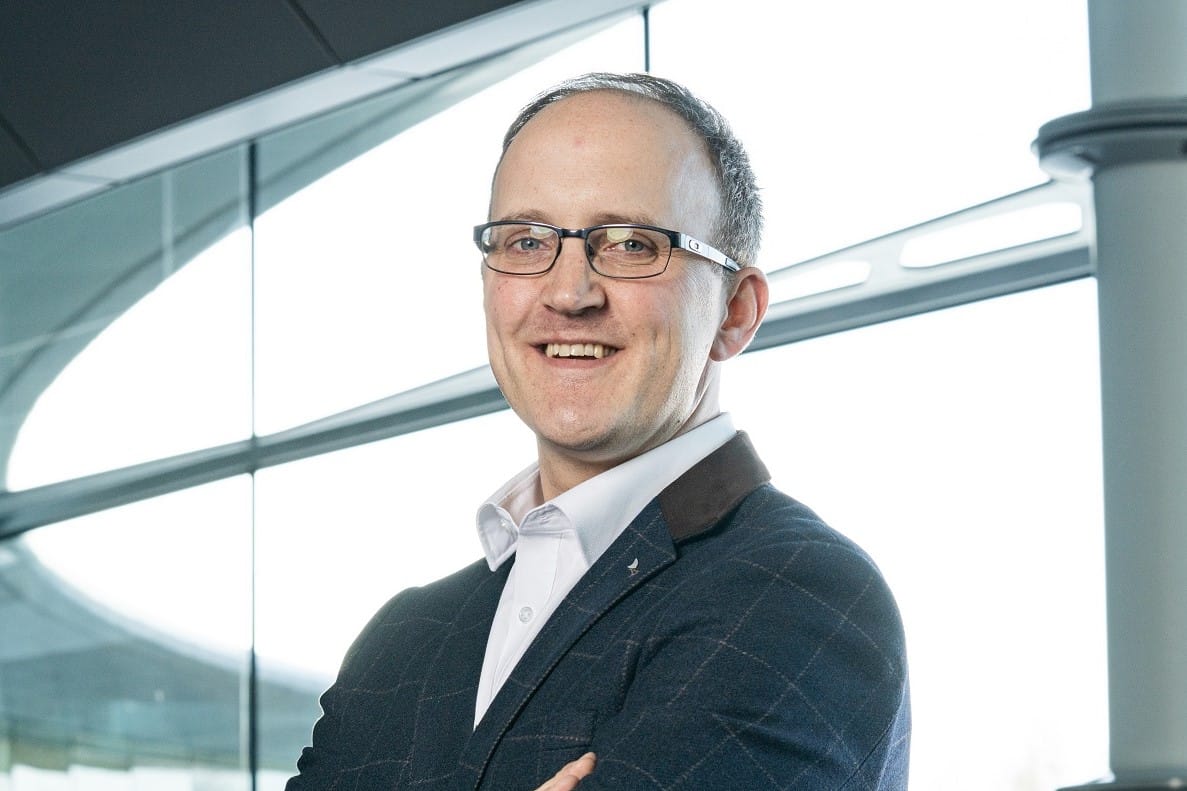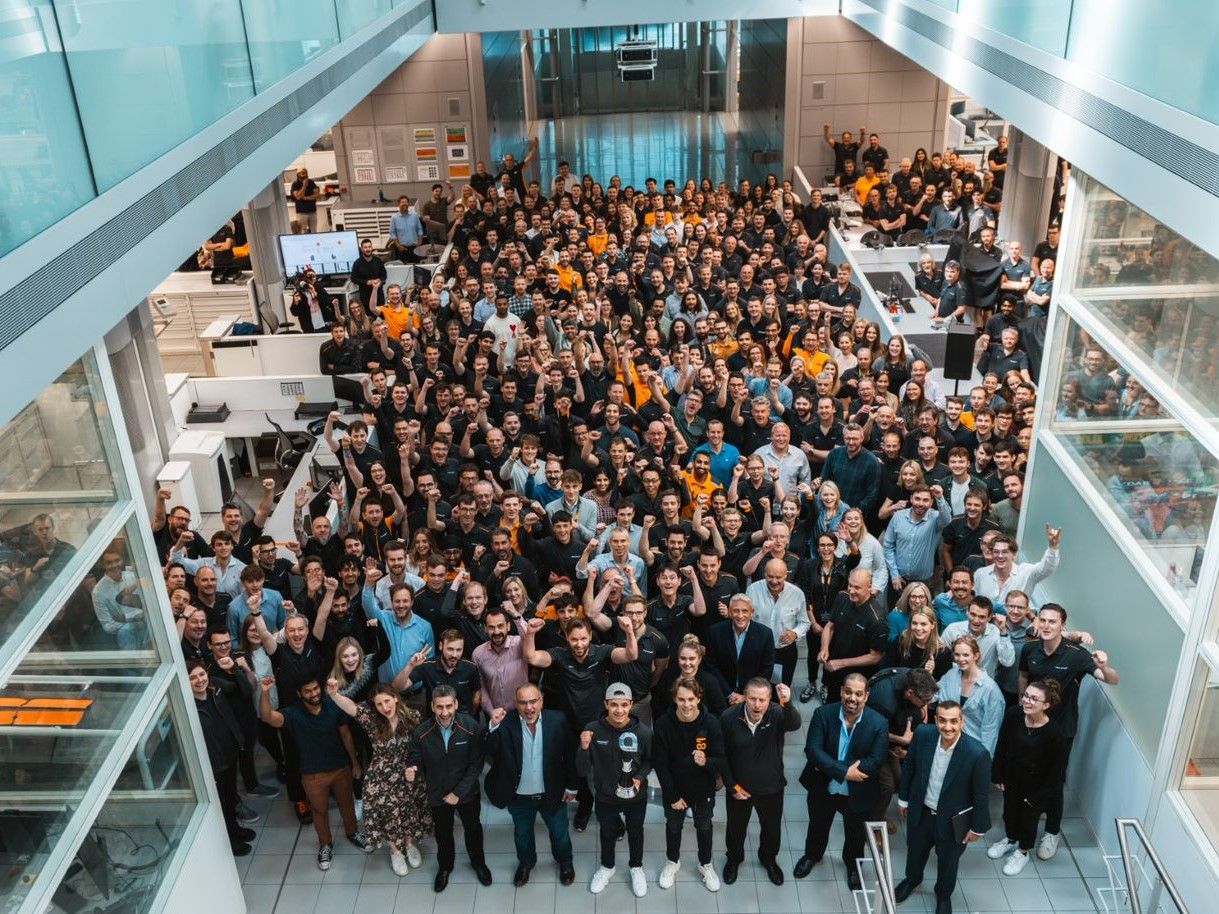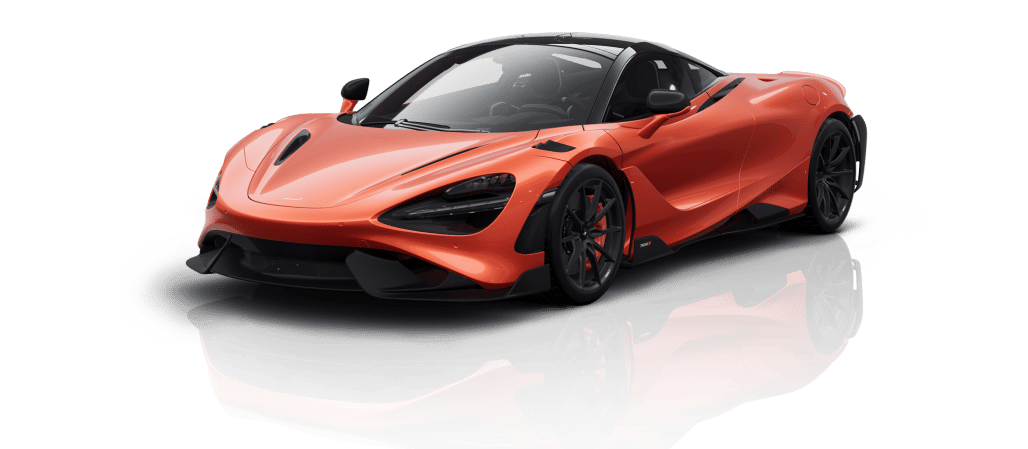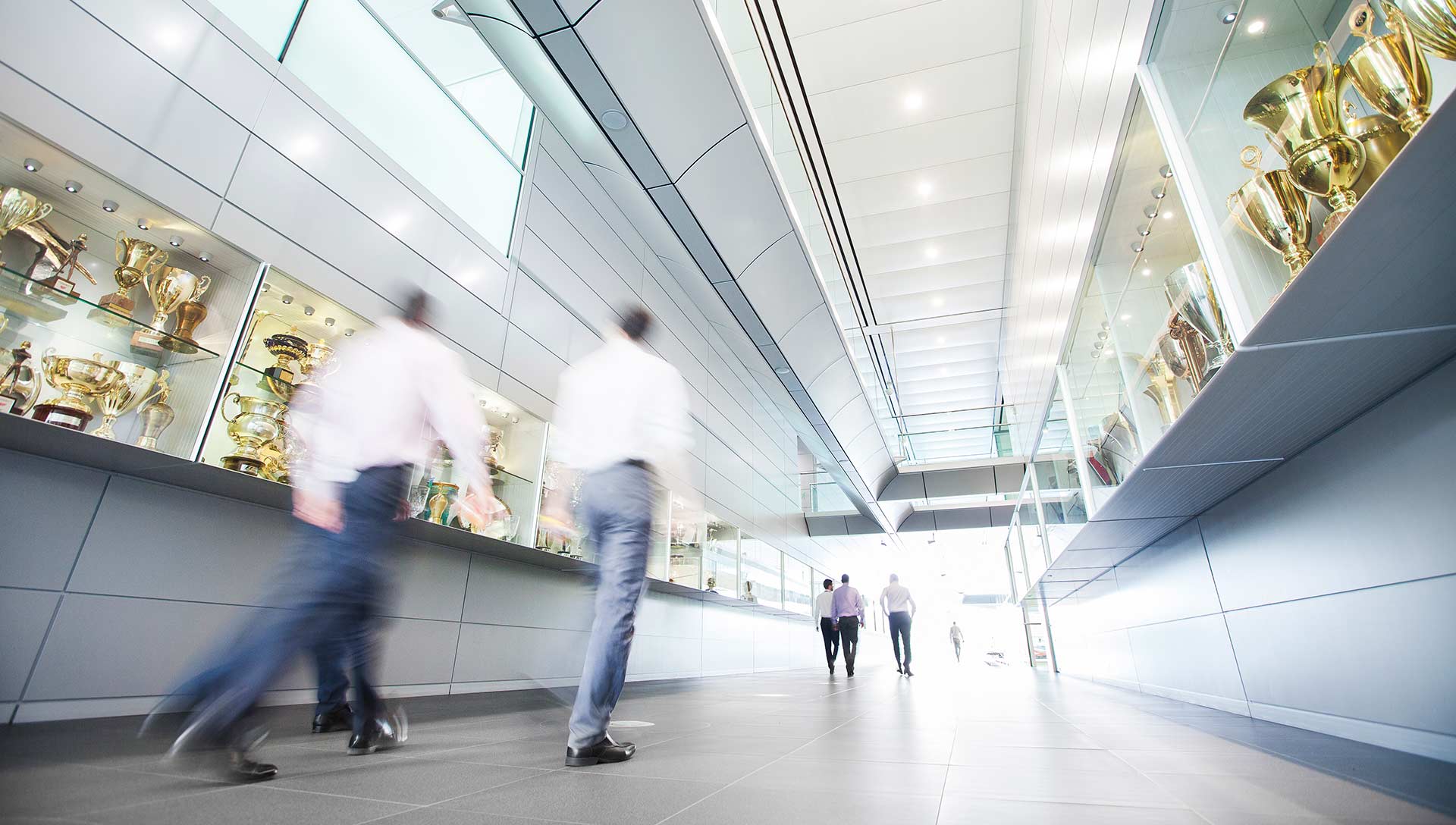
How a fine-tuned culture is playing a central role in our improved performance
We’ve been refining our culture over several years, and Chief Operating Officer Piers Thynne sees it bearing fruit
Andrea Stella wants the team to be “comfortable with being uncomfortable,” and as we walk the factory floor, we can see this in practice: the determined smiles, the air of confidence, and the constructive conversations.
The voices drown out the machinery around us. It’s a mixture of laughter, debates, and organisation. The team are working under extreme pressure to tight deadlines with high expectations, but you’d not be able to tell.
The recent upgrades deployed in Austria, Great Britain and Hungary were the result of a mammoth effort at the McLaren Technology Centre. They would have not been nearly as impactful had the team not taken risks or pushed the boundaries of what is possible. But if you had walked the factory floors in the weeks leading up to their installation, you wouldn’t have seen anxiety or nervousness, just determination and confidence in each other. This is due to a refined culture, which has been slowly fine-tuned over several years.
Chief Operating Officer, Piers Thynne has joined us for a walk of the factory floor. A degree-qualified engineer with an extensive CV, Piers has been here since 2008 in various leadership roles within the team, including Executive Director, Operations, from 2019, where he was responsible for the operational strategy of the factory, including project management, quality, manufacture, build, test, logistics, and much more. Passionate about delivering performance, Piers has been at the heart of our cultural shift.

No one at McLaren has a better understanding of what culture means than Piers. “It's how it feels to work at McLaren,” he says when asked for his definition.
“That can be in our hierarchy, working practices, communication styles, or even how hard we work,” Piers continues. “It can cross many, many, many, many topics. Our cultural journey has been on a different path for some years now.
“I think you can see that this has been a very positive journey that aligns with what is happening in the wider world. We haven’t lost any brand identity, we’ve retained that, it’s just that we are going on a more positive trajectory.”
For all of the technological improvements that have played out in Piers’ time at McLaren, it’s the people who work here that have always made the most significant contribution to our aims and ambitions.

Behind every great idea is a group of people who were given the belief and space to conceive it. Our new technical model was designed with this in mind.
Piers was appointed as COO during Andrea’s transformation of the technical team, which includes Peter Prodromou as Technical Director, Aerodynamics, and Neil Houldey as Deputy Technical Director, Engineering & Design. In January 2024, they’ll be joined by David Sanchez and Rob Marshall.
Sanchez will take on the role of Technical Director, Car Concept and Performance, after a decade at Ferrari, and Marshall will become Technical Director, Engineering & Design, after 17 years with Red Bull.
Empowerment has played a critical role in our evolution. It’s about allowing staff to make their own choices, solve problems, and learn from their mistakes. Piers believes that trust and communication from above are critical to this.
“A high-performing organisation needs a clear leadership structure, and our team reorganisation makes that crystal clear,” Piers explains. “Empowerment is hugely important in a fast-moving, high-performance team - what I love about working in Formula 1 is that there are 800 really clever people who work here.
“If people are empowered, they feel encouraged to collaborate and work together, and then you get more out of them because you have removed the boundaries, the hierarchy, and the permissions culture. You need to let the team organically grow and learn from one another.
“My role as COO is to ensure that Andrea's intentions for the team are acted upon. He can’t be everywhere at all times. In terms of setting the culture, we use multiple methods of communication, such as debriefs and internal messaging, but the most important one is having conversations.
“As COO, I am now having more conversations around the business, in terms of objective setting and check-ins, but also about ways of working, what is happening within departments, and just checking that we’re all aligned.”
“It is important in the complex world of Formula 1 to acknowledge that sometimes things go wrong. Is that okay? Yes, so long as we analyse, learn, and continuously improve.”

Piers Thynne
COO, McLaren Racing
This includes a no-blame culture, which only works if the communication and exact definition of it are clear. It’s about accountability, ownership and learning from mistakes. People working within key roles in Formula 1 can often be held up as superheroes, and although the skillsets within our workforce are vast, every single one of them – drivers included – is human.
No one’s perfect, and things can go wrong when working to such fine margins. It’s about finding out why it went wrong and ensuring it doesn’t happen again.
Piers highlights an example from the current campaign: “Take some of the issues we've experienced on track this year. Earlier in the season, we had some very complicated reliability issues, and Andrea's message was clear: it is never okay for the car to stop out on track.
“It is important in the complex world of Formula 1 to acknowledge that sometimes things go wrong. Is that okay? Yes, so long as we analyse, learn, and continuously improve. It is often very challenging to find the root cause of those issues, but when we do find it, we don’t go to the department or the individual and blame them. Instead, you involve them in finding out where the issue originated and how to fix it.
“Is it a process issue, a materials issue, or something else? You empower them to find out why it happened and how to solve it. That is really, really important in creating a reliable car.
“When things go wrong, whack-a-mole is not okay. If you don’t empower them to solve and learn from it, you don’t prevent it from happening again.”

As we walk the factory floor, there are people taking coffee breaks, catching up with one another and even playing table football. It’s part of the flexible break system that’s been implemented: staff are encouraged to choose their break times to suit their workflow.
It means they break when they feel they need to, helping to prevent burnout, and it stops them from standing idly waiting for machines to finish or going for lunch mid-task.
“It comes from understanding the recovery system from a human perspective,” he says. “Things such as managing screen time or going for a drink whenever you like – no one ever asks for permission to take a break, and I am pleased with that. The right time to take a break is when you need it, or in sync with your workflow.
“Instead of going straight from one 60-minute meeting to the next, make the meeting 50 minutes and then take a 10-minute break to get a drink, play some table football or ping pong, and take a screen break. These are useful tools for getting rid of pent-up energy, and they drive good competitive spirit, providing you aren’t disturbing those around you or playing for longer than five or 10 minutes.”
The great thing about empowerment, and a performance-led culture, is that there is no glass ceiling. The fine-tuning will never stop.

Our recent upgrades were launched successfully and helped us to score second and fourth at the British Grand Prix, but there were many takeaways from the process that can help us work smarter moving forward. It includes every staff member, from engineering to marketing and even the drivers.
“The year I started here, we won the Drivers’ World Championship, which was fantastic,” Piers says. “I cannot describe the euphoric feeling of winning a race or a world championship. It’s something that very few people in life have experienced. I am lucky to be one of them, and one of the things that drives me forward on a day-to-day basis, what gets me up in the morning, is my desire for the team to experience that.”
As the most prominent public faces of the team, the drivers have a particularly pivotal role to play in setting the culture. Lando and Oscar are regularly at the factory from early in the morning to late at night and spend their days doing more than just simulator work and marketing.
They’ll devote time to every sector of the factory throughout the season, speaking to different staff members, getting to know them, and learning what they are working on and how it impacts performance. It’s simple, but it boosts morale and builds a human connection, which is a valuable motivator.
“It’s important that they’re seen as members of the team,” Piers concludes. “Although they've got a marketing or a simulator schedule, they’re really happy to have these conversations with everyone, things such as ‘What are you doing? Why are we doing this? How are we moving forwards?’ It’s important to our staff. We’re all a part of this, and we’ve got a journey ahead of us, which is really exciting.”




Lando Year on Year
We asked Lando Norris the same questions, 365 days apart...
The Story of Chrome's Origin
“If you can paint a car in Chrome, I’ll give you a million dollars.”
2023 Belgian Grand Prix
Hear from McLaren F1 drivers Lando and Oscar, and Team Principal Andrea Stella after the Belgian GP.
Lando and Oscar on our improved performance
"Hopefully we can keep it going"
Sign up now
McLaren Plus is our free-to-join fan loyalty programme, bringing McLaren fans closer to the team with the most inclusive, rewarding and open-to-all fan programmes in motorsport.


